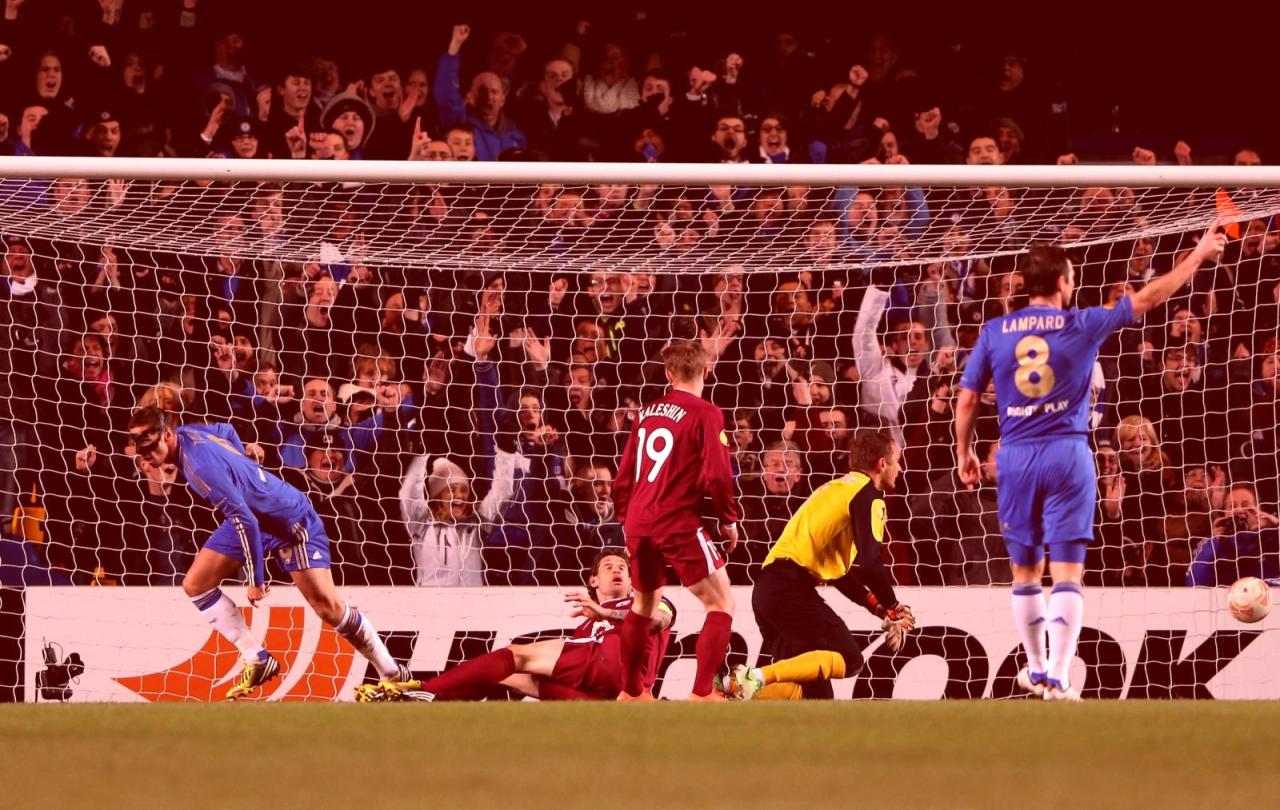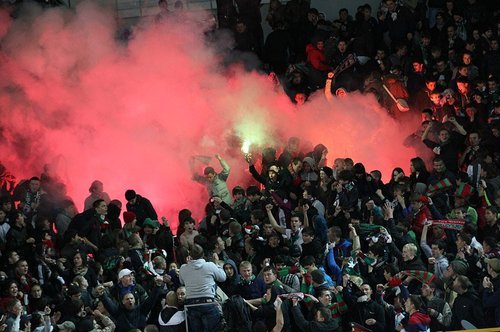Russian football is rotting: the decline of Rubin Kazan
Russian football is rotting: the decline of Rubin Kazan

Russian football is rotting: the decline of Rubin Kazan
By Domm Norris
The winds of winter continue to reverberate across Russia, as all eyes begin to turn away from the snow-capped mountains of Sochi; however, the carnival atmosphere in the southern reaches of the nation have not been wholly felt in other areas of the world’s most vast state. Rubin Kazan’s plight this season has been one of demoralisation as the memories of league title successes a mere five years ago begin to feel like incomprehensible dreams.
Rubin’s league victories, in both 2008 and 2009, brought the club to the fore of European football, with memorable Champions League performances against Barcelona major highlights in the club’s history. Despite those fantastic performances, there remained notable voices questioning just how legitimate the club’s domestic successes were, with some believing that they had used a complex match rigging system to ensure a short period of dominance. However, under the guidance of Kurban Berdyev, accompanied by the influential performances of Alejandro Dominguez and Aleksandr Bukharov, Rubin looked as though they would be capable of competing at the top of the table for the foreseeable future.
Fast forward to the present day and the club is rotting.
Kurban Berdyev has been dismissed as head coach after twelve years, following a dramatic downturn in results accompanied by a dire style of play, and a mass exodus of influential players remains in full swing. The losses of Bibras Natkho, Salomon Rondon and Aleksandr Ryazantsev in a single transfer window - having only received a fee for Rondon - have stripped the team of their most prized assets, and in turn, left their new coach, Rinat Bilyaletdinov, with an impossible task of inspiring a group of players lacking in genuine quality.
Bilyaletdinov’s arrival at the club is an appointment that will have done little to transform the often held opinion that Rubin are set to become the latest major Russian club to fall into the doldrums of anonymity - following the likes of Torpedo Moscow, FK Moscow, and more recently, Anzhi Makhachkala. The former Lokomotiv Moscow youth team coach lacks any genuine experience in a first team environment and is unlikely to be a name that will entice new faces to join the club. However, it is apparent that the board craved a head coach who would not look to rock the proverbial boat, and as such, this is yet another symbol of the club’s cruise away from the limelight of success.
Another major issue that continues to haunt Rubin is Kazan’s beautiful new stadium - which recently played host to the 2013 Summer Universiade - the Kazan Arena, which has hauled the city’s sporting architecture into the 21st century. Nevertheless, for all the modern design, there remain serious doubts as to whether Rubin will ever play host to a domestic match within its walls. The thought of not utilising the stadium has never been stated publicly, but the date by which Rubin had been expected to christen the new stadium has been repeatedly pushed back - with the club now not expected to utilise the facility until next season. The Central Stadium, where Rubin currently play their home games, continues to house a hazardous playing surface which is often so appalling that Rubin are forced to vacate to Moscow. Should the club never step foot in the Kazan Arena, it will be testament to the manner in which it has been managed over recent years, an expression of the ineptitude of the club’s board room.
Valery Sorokin’s Presidency is rapidly descending into a farce, which is unsurprising when one considers that he is flanked by the likes of director, Andrey Gromov, and Tatarstan President, Rustam Minnikhanov. The mismanagement and general apathy within the club has been typified by the Gökhan Töre saga, which saw the former Chelsea youth player accuse the club of extortion. Töre’s plight was symbolic of the murky waters in which Rubin – and Russian football – can often lurk, and it’s difficult to look upon the club without a degree of suspicion.
Sorokin is the man who has been tasked with ensuring that the club remain competitive, yet he is the one who has allowed the team’s best talent to leave thanks to a lack of contractual movement, while ensuring that a woefully under qualified youth team coach is placed into a role that the club’s legendary former coach struggled to overcome. Berdyev played his part in the club’s footballing demise, due to an unwillingless to allow his players to embrace their attacking instinct. However, he remained a solid hand brimming with vital experience. There remains a sense that there is little desire to ensure that Rubin are able to remain competitive, which will harm football in both Kazan and across the Russian game.
The gradual trickling of ineptitude that has almost wholly encompassed the club is sapping any slight glimmers of hope that could have signaled a new dawn of prosperity. It is horribly sad to consider that Rubin Kazan, the club who conquered Barcelona at the Nou Camp, are on their way to self-destruction. However, the foundations upon which Russian football is built continue to be precariously unstable. Away from the top tier, clubs are constantly buckling under financial uncertainty and disappearing from view in a worrying trend that shows no sign of halting. The collapse of a club in the vein of Rubin, in a situation that is entirely self-made, would send further tremors of uncertainty across the domestic game.
This piece was written by Domm Norris, an expert on all things Russian football. You can follow him on Twitter at @dommnorris. Comments below please.








